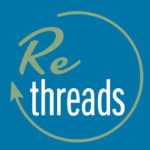I think most of us would agree that the American suburbanite’s dream of the ultra-green lawn (surrounded by the white picket fence) is neither sustainable or environmentally friendly. On the other hand, as a family, we’ve always loved the playing field a lawn has provided us. We romp around our yard playing catch or frisbee; we let the dogs catch a tennis ball; or, for my son’s last birthday, we had a neighborhood game of football.
That’s good stuff.
Historically (this means pre-Betty), my husband and I had a lawn philosophy of all things in moderation, which included the use of fertilizers. We don’t mind a few dandelions and wild violets and clover. My husband, an engineer, scientist, and overall brilliant guy explained long ago that fertilizers were just higher concentrations of what naturally occurs in soil. FACT: Plants (grass and everything else) need food to grow. They need nitrogen, phosphorous, potassium and other micronutrients. You cannot always get this food from your own soil, so an organic fertilizer may be required. The problem is that most Americans overuse high-powered fertilizers, pesticides, herbicides and the like.
I’m happy to say that now, more than ever, there are MANY alternatives when it comes to lawn care. I hope you find these “greener” lawn tips helpful (keeping in mind the Betty philosophy: live more consciously, buy wisely, and experience the virtues of less is more).
Eco-friendly lawn tips:
*REDUCE your lawn, if you are willing and able. Plant trees, a rainwater garden, edible landscaping, or your favorite drought-resistant and native plants!
*USE a human-powered reel lawnmower or electric lawnmower rather than gas. Using a gas lawnmower for an hour releases as many unburnt gas byproducts (PAHs) as an average 100 mile road trip! One I came across was the Earthwise 20″ cordless electric lawnmower (available from www.cleanairgardening.com until I can research where to get one in Charlottesville
*Get to know your soil! A soil test kit is a great option, Environmental Compliance Manager for the County Schools, Lindsay Check, suggested. These are available from garden stores, like Landscape Supply, for around ten dollars.
*NEVER APPLY MORE FERTILIZER THAN YOU NEED. Over-fertlized lawns are more susceptible to disease and can contaminate our water and harm pets and other living things.
*Use organic fertilizer with lower concentrations and slower release time. Worry Free Lawn Food, Ringer All Natural Lawn Restore, or Espoma brand lawn food
*You can reduce your need for lawn fertilizer by up to 1/3 by leaving grass clippings on the lawn and there are many nifty cool mowers with mulchers out there.
*Keep your lawn high
*Aerate your lawn
For more info check: http://www.watoxics.org/files/grow-smart-grow-safe
Hope that helps!
BWB





Comments on this entry are closed.